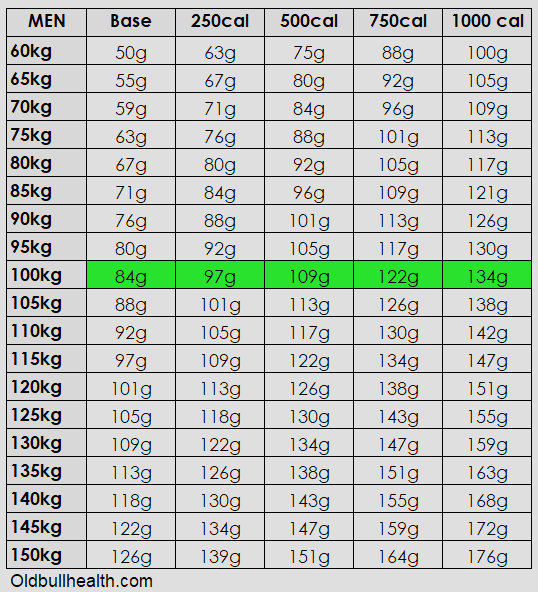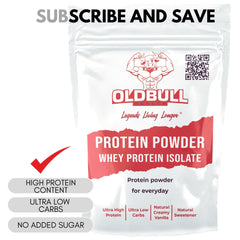How Much? Calculating Daily Protein Intake Requirements
Daily protein intake requirements can be tricky at best given an individuals’ variables when it comes to size, sex, activity, body composition, metabolism, etc. but not impossible, here is our measure guide.
Other, quick access guides to get you started:
- How many protein shakes should I use (Simple guide)
- How many bags of protein do I need per month (Simple guide)
- Benefits of protein, and why you need it.
Below is a more comprehensive approach on how to calculate your daily protein needs.
Daily protein intake recommended
The Australian protein Recommended Daily Intake (RDI) is:
- 0.84g per kilogram body weight.
So, for example, if you are 100kgs, your RDI is 84 grams per day (100kg x 0.84 = 84g). Note: This does not take into account several individual variables, a key one being exercise. If you believe protein intake is not a one-size-fits all, then read on.
Daily protein requirement table (Easy)
To get a more accurate read on how much protein you need, understand your daily protein intake requirement first. Start with your base amount, then think about additional requirements resulting from exercise or calories burnt and age etc.
With this in mind, we couldn't find a guide that takes this additional requirement into account, but we knew you needed one, so we developed one.
It has some assumptions, yes, but is based on research, expert input and has been cleared with our Dr. Jason after a lot of debate, and it's "old school". No emails or logins are required.
Quick user guide:
- Scroll down to the table below.
- If you don't exercise, find your weight in the left-hand column. The amount of protein is included in the Base column is based on the Australian RDI.
- If you exercise, move to the right in the top row to the corresponding number of calories you burn as a result of exercise. Drop down this column to your weight, and that will indicate how much protein you need.
(For example, if you weigh 100kg and burn about 1,000 calories from exercise, you will need approximately 134 grams of protein).
Be sure to read the assumptions and guidance after the table:
Assumptions
- 1g of protein is 4 calories and protein content from calories is 20%. (The average based on various research papers). Australia and New Zealand nutrient reference values and guidelines quote a min of 10% and a max of 35%.
- Body composition is not taken into account in the above or individual circumstances or health conditions.
- Protein intake for females is here
Manually calculating protein intake needs
Work out your daily calories
We all burn a certain number of calories every day regardless of how active we are. The more active you are, the more calories you burn.
If you don’t have an Apple or Garmin smart watch to tell you how many calories you are burning while you exercise, we have included some guidance below to help you figure this out.
Calculating calories burnt
How many calories a day does a "normal" person burn?
WebMD has created a useful table here which shows the male 50+ estimated calories to physical energy balance are as follows:
- Sedentary 50+ male: 2000 calories p/day
- Moderately active 50+ male: 2,200-2,400 calories p/day
- Active 50+ male: 2400-2800 calories p/day
You can also estimate your actual base with the following handy calculator to calculate your BMR (Basal Metabolic Rate) and then compare it to the above which is based on a standard recognised formula being (Just fill in the missing):
(66.47 + (13.75 x weight in kg) + 5.003 x height in cm) – (6.755 x age in years)
(This is called the Harris-Benedict Equation originally published in 1919 and revised over the years and most recently in 1990 by Mifflin and St Jeor)
Again, this is a guideline as it doesn’t take into account body composition and those of you who are more research-orientated will also notice the constants in the formula can vary, the formula above however is the original.
Now you know by comparing the above two results how many calories you are burning and can factor this in with your exercise or activity-based calories per the table.
Simple example using the above:
Moderately active male per table 2,200
Using the BMR calculator tool 2,300
Additional calories +100
Calories burnt from exercise +650
Total additional calories burnt per day +750
From an exercise perspective, again there are variables based on time, heart rate, fitness, etc. On average, a 100kg male of average fitness running 5km in around 27-30 mins will burn around 500-600 calories.
Calculating protein intake
To work out how much protein you consume in a day there are a number of apps that will track this, myfitnesspal is a good one if you don't already have one. But you need to fill in a food diary.
Or just use the calories calculation above and our protein intake table, using your weight and calculated calories burnt on average a day to get a more informed guideline.
Protein powder
If you already use a protein powder, it probably has a 30g scoop like ours, and the ingredients panel will show you how many grams of protein there are in that 30g serve.
Now before you get that 30g scoop out and dive into a protein smoothie. This is total protein you need which includes dietary protein i.e. protein in the foods that you consume.
Nutrition
French Fries
Your challenge is managing the carb and fat intake alongside this protein. So, for example 100g of French fries has 3.4 g odd of protein. Probably not a good idea to eat 3,3 kg of French fries to get your protein intake.
Alcohol
On this matter, for your information whiskey has no calories, red wine 0.1 g per serving meaning you would need 11,200 servings or around 4,480 glasses to get your RDI of protein. If you did pursue these options beer is your best bet with 0.5 g per serving or around 840 beers, but definitely not something we would recommend!
Old Bull protein powder might just be a better option for you.
Daily protein needs
You should now have a reasonable idea as to your daily protein needs, and also how much protein you get from the food you consume.
If you have a protein gap, protein powder is a great supplement just before or after exercise. If protein is a big change in your nutrition please consult with your doctor first.


